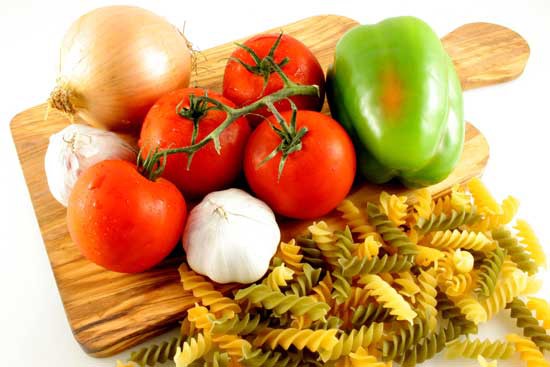
Food plays a very important role in the lives of Italians. We love eating and doing it well; it’s an occasion to relax, an opportunity for conviviality, pleasure and socialization. Not surprisingly, Italy is famous around the world also for the excellence of its food and its healthy Mediterranean cuisine. The Italian language is, perhaps for this very reason, full of ways of saying that are related to food. Do you know them already? Let’s take a look together at a few you will often here during conversations.
- Starci come i cavoli a merenda (to appear as cabbage for snack = stick out like a sore thumb): have you ever tried eating cabbage as a snack? Well let’s hope not because a tea with cookies, a sandwich or a yogurt can be appropriate, but cabbages surely not! So this term is used when referring to a situation or a person who has nothing to do with the context, who is not adequate.
- Starci come il cacio sui maccheroni (to appear as cheese on maccheroni = just what the doctor ordered): “cacio” (which is a type of cheese) matches very well with macaroni, it completes them by adding a richer flavour. Using this expression means therefore, unlike the previous one, confirming the suitability of a situation.
- Dire pane al pane, vino al vino (to say bread for bread and wine for wine = calling a spade a spade): it means to be blunt and direct in conversation, going straight to the “heart of the matter” and saying what you have to say without unnecessary mincing of words.
- Essere come il prezzemolo (to be like parsley = have a finger in every pie): means to be always in the middle of situations, being anywhere, always present in consideration of the fact that parsley is a very common ingredient in the Italian cuisine.
- Essere dolce come il miele (to be sweet as honey): this one is pretty straight forward, right? It’s a compliment made to a very sweet and kind person.
- Essere una testa di rapa o essere un broccolo (to be a turnip or broccoli = to be a being a blockhead): okay, these on the contrary are no compliments at all! They have a negative trait and are used to indicate a person that is not too alert or intelligent, who understands things slowly.
- Essere un salame (to be a salami = to be dumb): this also is not a compliment, despite the fact that salami can be a very good and appetizing food. It is used, similarly to the previous one, to indicate a person that is a little ‘dumb, not very bright and not very enterprising.
- Vestirsi a cipolla (dress like an onion = wear different layers of clothes): is a saying often used during spring and autumn when temperatures can change very quickly and when one never knows what to wear we often dress in layers like an onion so as not to feel too hot or too cold.
- Fare un minestrone (make a vegetable soup = make an hotchpotch): to put together varied topics, things or people with very little or nothing in common.
- Avere le orecchie o gli occhi foderati di prosciutto (have ones ears or eyes covered with slices of ham = have your head in the sand): to ignore, to not see or hear what is rather obvious to everyone else.

Did you already know a few of those? Can you think of some others that you might have heard during a conversation?


